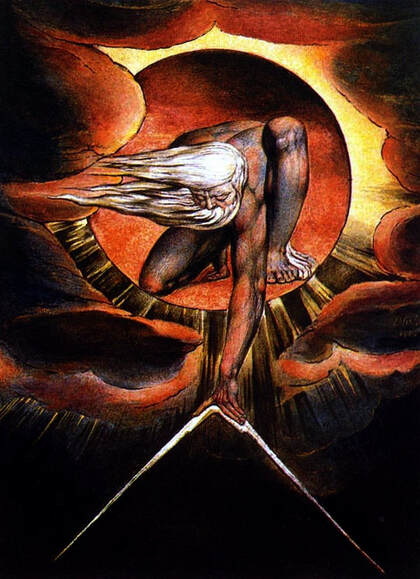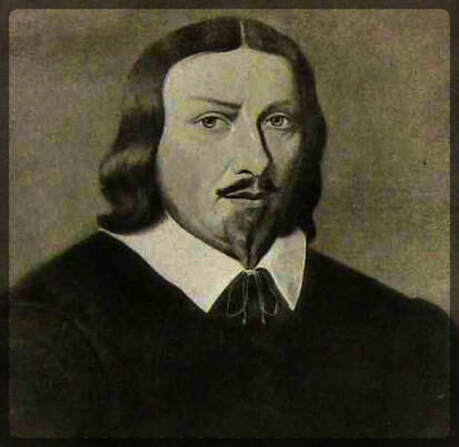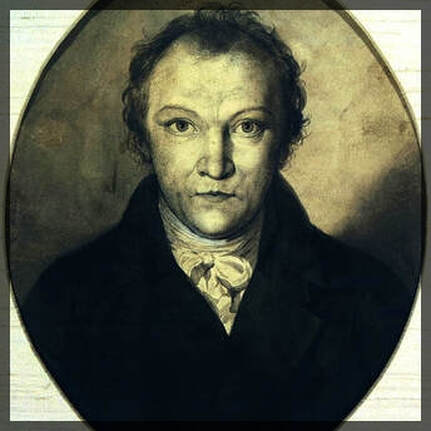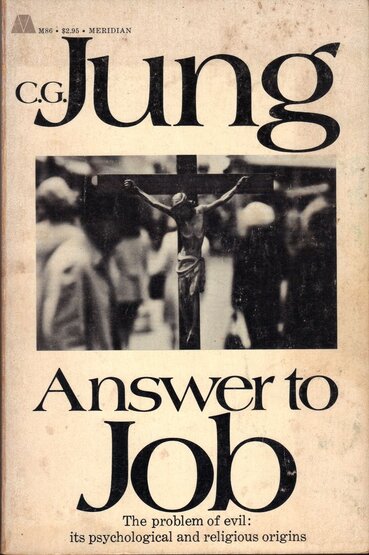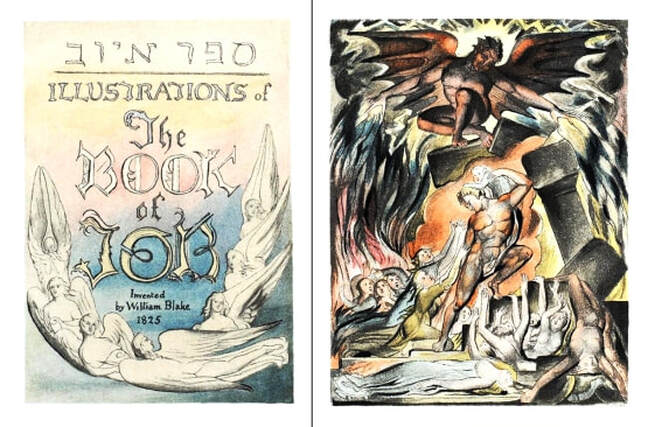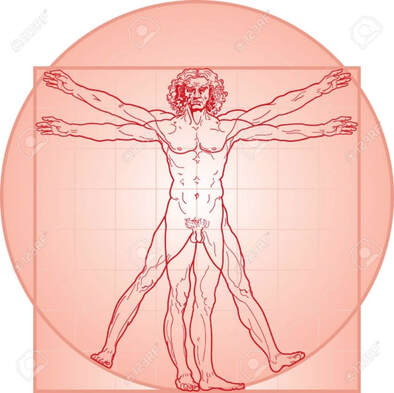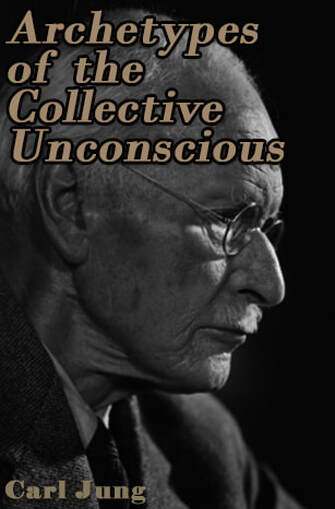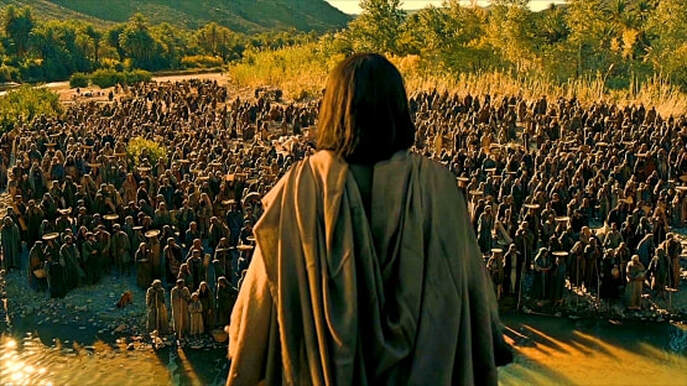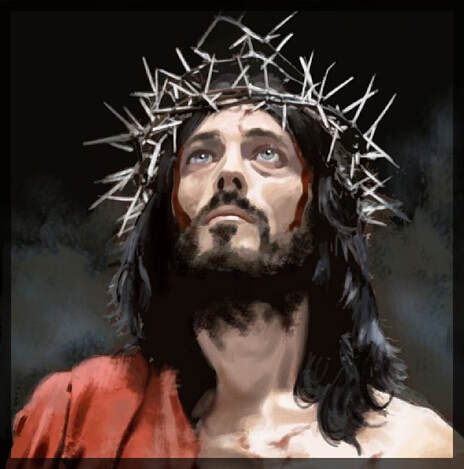Does God Have An Unconscious?
.
by Michael Tsarion
|
|
Your vision will become clear only when you can look into your own heart. Who looks outside, dreams; who looks inside, awakes - Carl Gustav Jung
|
|
|
|
German mystics of the fifteenth and sixteenth centuries asked a very heretical question: does God have a dark side? Does he, like his human creatures, possess an unconscious?
The question was asked again by later German Idealists, and was an implicit question for great psychologists such as Carl Gustav Jung. It's a disturbing question, which is probably why it was only broached in veiled form through the centuries. Mystics such as Jacob Bohme, Meister Eckhart, Nicholas Cusa, Angelus Silesius, and others, knew what their fate was likely to be if this question, and others like it, were loudly announced. Bohme himself died just before his arrest and trial for heresy. |
|
|
|
German mystic Jacob Bohme (1575-1624), whose extraordinary visions and insights gave rise to many questions later raised in modified form by the great German Idealists, men such as Friedrich Holderlin, Friedrich Schelling and Georg Hegel.
|
|
|
|
These men were not inclined to wholly accept the accounts propounded by the Church about the nature of good and evil. They knew there was more to it than what was revealed in official scriptures. They knew certain important uncanonical books had controversial things to say about the creation and fall. Gnostic texts, for example, had been expunged from the corpus because they spoke of a ruling Demiurge or imperfect God responsible for the creation of the world, and for the ignorance and corruption it contains.
The thought of these few continental philosophers ran along similar lines as that of English mystic William Blake. During the Napoleonic Wars there was an embargo on foreign books in England. Nevertheless, it appears that Blake had limited access to the works Paracelsus, Bohme, and certain Kabalists. According to the main schools of Kabala, the creation is indeed a fallen, imperfect sphere were the light of Spirit is drastically diminished. The world as we experience it is at least ten stages removed from the divine realm. It is also presided over by an evil deity or archon. (In some schools the Demiurge is female.) |
|
|
|
|
|
|
|
Hermeticists and mystics don't rule out the presence of an evil god, but generally prefer theories which speak of evil as a phenomenon of human thinking and behavior. They are wary of attributing evil to supernatural causes and beings. Like later psychoanalysts, early mystics kept their focus on the highly ambivalent character of humans.
Hermeticists are also not as down on the world as Christians and Gnostics are usually wont to be. They don't automatically demonize nature, animals and the human form. Regardless of how difficult life becomes, and how depressed one gets, the Hermeticist refrains from projecting blame onto the non-human world. In any case, implicit within Bohme's mystical philosophy is the question of whether God has a dark side to his personality. It's not as heretical as it sounds to ask this question. Not only would a great many passages in the Old and New Testaments stand explained if God did have unknowable facets to his being, but our picture of Spirit would also be significantly upgraded. Throughout his ambiguous writings Bohme subtly explores this question, and lays out the case for his idiosyncratic vision of divinity. Asking this controversial question about God made Bohme more of a psychologist than a traditional theologian. It would have been a good thing had more theologians and biblicists asked questions as he did. Even if it is taboo to ask it about God, it's less problematic if we ask it about Jesus, as God incarnate. When Jesus walked the earth as a man, did he have a belly button and nipples like all men? And more to the point, did he have a dark side? Nowhere in the scriptures does the question arise. But is it even possible for us to conceive of a person without an unconscious? Did Jesus dream? Did he have emotional conflicts, hang-ups, phobias, fixations, syndromes, complexes and wish fantasies? If not, why not? How could he possibly know what human life was about if he wasn't subject to these predicaments? And if he did have a dark side or unconscious like all humans why do we never hear about it in the Gospels? it's a hell of an omission. Of course when it comes to Jesus as a man, we take it as a given that he had an unconscious alright. This is because to be conscious at all presupposes it. To have a body and a brain demands it. To benefit from human relationships also makes it imperative. If every patriarch, church father and pope possessed an unconscious mind, Jesus must have had one too. How else could he or any of his disciples experience dreams and visions? How could they hear the voice of God when others around them could not? No matter what state Jesus and his followers were in way back then, the man of today, Christian or otherwise, certainly does possess an unconscious self and a dark side. Perhaps it was this absolute fact that drove Bohme, Blake and others to inquire into God's fundamental character. After all, if we are made in the image of God, must not God also experience moods, emotions and fears? Must he not suffer from hang-ups and complexes? Despite over a century of psychoanalysis the problem of God's psyche hasn't received as much attention as it deserves. Theology and most philosophy won't touch the matter, and the ordinary believer has never looked into it. As far as Christian apologists are concerned - men such as G. K. Chesterton and C. S. Lewis, etc - God's psyche has no dark side. God is fully aware of each and every aspect of his mind and being. It's what makes God God, they say. Most Christians agree and give the matter no more attention. Of course this belief in God's omniscience isn't much more than a belief or presumption. It can't be proven one way or the other, although dogmatic denials should not prevent us asking deeper questions about the nature of Yahweh or Jehovah, revising everything we know about the roots and relevance of religion. God is light, they say. Right, but where there's light, there's shadow. |
|
.
|
|
One man who, in recent times, did take up the question of God's dark side was Swiss psychologist Carl Jung. His greatest work on the taboo subject is probably Answer to Job.
|
|
|
|
Jung's extraordinary book dredges up the problem theologians hoped was long forgotten and buried beneath the debris of theological argy-bargy. There are plenty of relatively heretical and taboo subjects churchmen loathe to discus, but none more than the question of God's dark side.
|
|
|
|
In Answer to Job Jung delves into the troublesome problem of God's dark side. His focus is the Old Testament Book of Job, a bizarre tale which fascinated William Blake over a hundred years earlier and for similar reasons. Some of Blake's most famous and loved paintings are those illustrating verses in the Book of Job.
|
|
|
|
Blake's striking illustrations for the complex Book of Job, one of the Bible's most enigmatic texts. Blake asked the most daring questions about the Bible, Christianity and the reasons for religion. (Here for more...)
|
|
|
|
Since the days of Milton's Paradise Lost, the peculiar relationship between God and Satan (or good and evil) has fired men's imaginations. But Blake, Bohme, Jung, and others, questioned whether this hard division between good and evil really makes sense. Is it symptomatic of a deeper more mysterious metaphysic? After all, is it really possible for us to think of an entirely good or entirely bad entity, as presented by Milton and other Christians and Gnostics? It works in fiction, not in reality, which tells us a great deal.
Surely it's more logical to think of a single being with good and bad sides to his nature? Why are we forbidden to think of God in such logical terms? Blake had no problem with this profile of divinity. In fact, in his Four Zoas he not only divides God into four separate parts, but into sixteen parts in total. This, again, is consistent with certain mystical and Kabalistic paradigms. Leonardo da Vinci (following Pythagoras, Plato, Plotinus, Vitruvius and Agrippa), depicted the Anthropos (or God-Man) as a being divided into at least four parts, attributing to him the same proportions found in every existing part of the universe. |
|
|
|
The famous image of Vitruvian Man, by Leonardo da Vinci, who filled his works with Hermetic motifs. The image probably inspired William Blake's depiction of Albion's (God's) fall into material creation, and his fragmentation into antithetical hemispheres. God is most definitely a divided being in Blake's iconography.
|
|
Jung's masterly book describes the anatomy of the psyche.
|
|
There's no point arguing with Christians about God's dark side, and why questions about his fundamental nature are largely taboo. The church is obviously not a democratic institution interested in deconstructive thought, even if in modern times it pretends to be so. There's too much to lose and too many skeletons in the closet.
What is important is that we revise our understanding about the nature of God presented to us by theologians. As Carl Jung knew, any question about God's nature inevitably impacts what we know about ourselves. This is because, in Jung's view, God is simply an external representation of the Self. In other words, God is one of many Archetypes which, individually and collectively, originate in worldly experience. There's nothing supernatural about it. This is not to say that science can step in with its bevy of mundane answers. Jung knew this was far from the case. The materialist-atheist scientist's view of reality is just as distorted and plagued with absurdity and error as that of the theologian. Both the atheist and the Christian are self-hating, self-evading dogmatists in one way or another, taking refuge from their own being by way of their phantasmagorias and spurious allegiances and affiliations. Being disciples of absurdity (of Mysteria) we can't trust their view of reality to be anything but distorted and false. What they say about the nature of being and reality is meaningful only to the extent that their utterances invariably fold back to reveal their own psychological typology. Their statements pertain to themselves, not to reality. Speaking of the anatomy of the psyche, Jung explains that the content of the unconscious is derived from memories and ideas which over millennia coalesce, forming sediment in the psyche. Some of these ideas grow in power over time, becoming exceedingly dynamic and numinous. These archetypes constitute the foundations of thinking and emotion. They are like the lenses by which we view reality, and each new experience is recorded and added to the ancestral reservoir. |
|
|
|
The archetypes can either enrich consciousness or tear it to pieces. Jung goes to great lengths to explain how and why this is the case.
In terms of the God-Archetype, we are not to project it externally. Doing so creates religion, which in turn becomes idolatrous. Our vision of divinity ceases to be authentic and psychic health is immediately compromised. Our thinking becomes collectivized and perverse. While God is exalted and deified, man is deemed lowly and sinful. It's a travesty with its roots in human folly. The solution to the problem is psychological insight. One must discover the mystery of the Self in order to free themselves from the chains of dogma. Blake and Bohme were disciples of freedom not dogma. Jung followed in their footsteps, providing insightful answers to the problem of evil. For Jung, it is not a case of God being the author of evil. Rather, it is a case of human psychic dynamics by which the Self is projected externally onto the world and other people. Freud's Totemic Father - in the form of a patriarch or similar heroic figure - receives the projection of our archetypal male and consequently submission and enslavement follow. When projection occurs, an archetype is emptied out into the limited stereotype, causing all sorts of problems. The first aberration is the hard division between "good and bad." This polarization is a characteristic of splitting, by which "Shadow" elements of the Self are pushed away and disowned. The offender in this catastrophic act of dissociation is the superego, which is itself the consequence of parental incompetence and chronic Adultism. As mentioned elsewhere, the ego is a mass of defences. The superego is particularly repressive, and is responsible for drastically diminishing individuality and self-expression. Repressing and disowning parts of our own being inevitably leads to the exaltation of certain parts deemed "positive." These are usually aspects endorsed by society (or the Collective). In fact, without society (Mitwelt) there could be no such thing as religion. In the Gospels we rarely find Jesus preaching at length to a single person. It is almost always to a "multitude." As Nietzsche knew, Christianity makes perfect sense to the masses. |
|
|
|
Wherever you find religion, you'll find the masses and the mass mind. It's a marriage made in heaven.
|
|
|
|
The evil Demiurge is, therefore, not some spirit beyond time and space. Rather, it is the projected Self, the abomination within the psyche, not beyond it.
Learning from Jung's corpus we find ourselves able to answer the age-old question of the mystics. We are assured that God does indeed possess a dark side and an unconscious. This is because God and the unconscious are one and the same. They are inseparable. Early believers had no knowledge about the dynamics of the psyche, and were not psychologically-minded. The Self was for the most part anathema to them, a burden and impediment to enlightenment. It was not included in the great journey toward God, and neither was the body. But what of today's world and humankind's thinking here and now? After the revelations of Blake, Freud, Jung and others, are we anymore aware and empowered? Is religious dogma any the less throughout the world? Given that the answer is NO! what are we to do? Might we not ask why a state of decay remains, and why denial, regression and fanaticism are the norms. Jung understood why projection occurs and how loath people are to introspect. He writes: |
|
|
|
It is of no importance whether evil is here or there, but one can deal only with the evil in oneself, because it is within one’s reach, elsewhere one trespasses
|
|
|
|
For Jung this is the key to understanding the existential crisis of all times. In other words, as victims of autophobia we are afraid of the Self, afraid to introspect and face the mystery of our own being. Better to become preoccupied with other people, social causes, supernatural realms, and external objects of veneration. It all brings necessary relief from the existential crisis.
And so it is with most of the world. The circus continues regardless of the silliness. God is all good, and the devil all bad. That's the suitable church-approved answer, we need no other. It's been custom-made for a generation of inferiors and evaders. "I believe it because the Boss Hog tells me to...The Authority authenticated it, and that's good enough for me." Of course, if this were true no Christian would ever experience pain, suffering, depression, anxiety or neurosis, right? They'd be full of peace and love, and never be tormented by desires, wishes or failure. They'd never attack another or go to war. They'd turn the other cheek and forgive their enemies, right? Clearly, it's almost impossible for pathological types to self-reflect and analyze the motives and causes behind their behavior. They merely refer to the manual and follow its directives throughout their lives. They do not notice their penchant for monoideism, dissociation and reality distortion. They don't see it, as Jung did, as a trespass upon their own being, an act of self-sadism. For religious types evil must be external, otherwise how can God and Jesus be heroic? And we must have the hero otherwise the whole script breaks down. Evil is there to be defeated by God's bolts of lightning. It's the best show in town, a real blockbuster. Jesus brings down his wrath upon the heads of the unworthy. He banishes the demons and casts out the money-lenders. He reviles the evil priests, procurators and kings, topples the corrupted temple, heals the sick and raises the dead. He's the champion of the poor and meek who are promised eternal life. In other scenes Jesus is tempted by Satan, as was Job. And like Job, Jesus overcomes his evil adversary. The priests and Romans also tempt and mock Jesus, but his faith stands resolute. His disciples doubt and betray him, but he prevails. Judas sells him out to his enemies, but after torture and crucifixion he resurrects and returns to his heavenly abode. He announces that his Kingdom will one day be built on earth, and that he will return to save the day. Very impressive stuff. Without the patently heroic motifs there's not much to pitiful saga. Remove these motifs and what remains? Surely not enough to gain a single sane convert. |
|
Christians don't actually need Jesus, but they sure need the Hero.
|
|
Of course, in the Jesus story we discern that the heroic type does indeed possess a dark side. Jesus is capable of every mood, emotion and reaction. And if good and evil exist as possibilities within Jesus, the Son of God, certainly we are right to question if they exist within God himself.
So much for that problem. The more vital one in front of us is that concerning the detour we've taken for so long. If we've avoided the problem of human evil by projection and fairy tales, we can't have made much progress solving the problem and banishing evil from our world. One look at the headlines shows us what little progress has been made. |
|
|
|
The unconscious is not just evil by nature, it is also the source of the highest good: not only dark but also light, not only bestial, semi-human, and demonic but superhuman, spiritual, and, in the classical sense of the word “divine” - Carl Jung
The sad truth is that man’s real life consists of a complex of inexorable opposites...day and night...birth and death...happiness and miser...good and evil - ibid |
|
|
|
Jung was born in 1875, Freud a little earlier in 1856. Both men died in the twentieth century, after experiencing a great deal of what we do today. Although certain aspects of orthodox religion have altered in ways because of their work, essentially little has changed. In fact, since their time many westerners have turned away from Christianity only to develop an obsessive interest in absurd eastern paradigms, often mistakenly referred to as "mystical."
Despite the fatuous trends, our world still heaves with evil. Man is no less ignorant, distracted, debauched and infantile. He is certainly not inclined to be any more introspective than his forebears. If anything, he's been well instructed not to investigate his mind, but to complain about it and freeze its operations. Eastern charlatans instruct him to tranquilize his mind and obediently follow the directives of the Guru or Holy Book. Since western man already has a master-slave relationship with himself, he takes to ascetic practices with a passion. It's simply business as usual. The same old poison in a different cup. |
|
Roll Up!...chapatis and nirvana for all.
|
|
Regardless of the makeovers, bead-rolling and chanting, the true mystic's question remains: Do Shiva, Buddha, Krishna and the Dalai Lama have a fucking dark side? Do they possess an unconscious?
Answers on a postcard please. |
|
. . .
|
|
